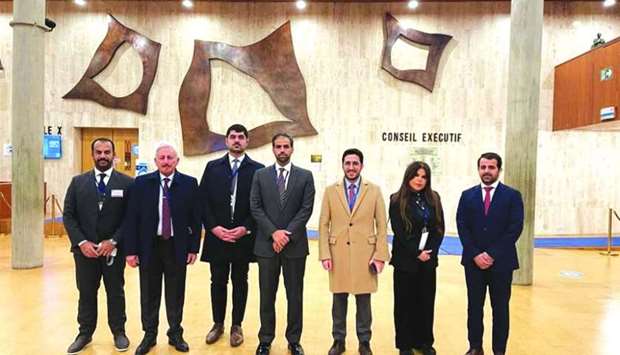Qatar was elected to join the 12-member Committee for Protection of Cultural Property in the Event of Armed Conflict at a meeting convened Wednesday in Paris at the Unesco headquarters.
Established by the 1999 Second Protocol to the Hague Convention, the committee bears responsibility for receiving and considering requests for international assistance, determining the use of the fund for the Protection of Cultural Property in the Event of Armed Conflict, and monitoring the implementation of the Second Protocol under the mission of ‘Heritage for Peace’.
Qatar will be represented on the committee by Qatar Museums (QM), the institution that preserves and advocates for the nation’s cultural heritage.
QM chairperson HE Sheikha Al Mayassa bint Hamad bin Khalifa al-Thani said: “As a nation that prizes its legacy and history and views cultural exchange as an indispensable avenue toward international understanding, Qatar is honoured to join Unesco’s Committee for Protection of Cultural Property in the Event of Armed Conflict.
“We look forward to bringing the expertise we have developed at Qatar Museums and our recognised depth of experience in cultural diplomacy to the imperative task of safeguarding endangered sites and properties knowing that the damage or destruction of any single country’s heritage is also a loss for all humankind.”
QM CEO Ahmad al-Namla said: “We are proud that Qatar is known throughout the world as a nation that facilitates international dialogue and fosters diplomacy. In these efforts, culture plays a critical role.
“Hence, by joining the representatives of other nations on the Committee for Protection of Cultural Property in the Event of Armed Conflict, Qatar Museums will take positive measures to protect cultural heritage, while extending and enhancing the network of interstate relationships that can help prevent conflicts from erupting.”
Dr Fatema al-Sulaiti, director of International Co-operation at QM, who was unanimously named as rapporteur of the committee, said: “We promise to uphold the integrity and values of The 2nd Protocol Committee to The Hague convention 1954 for the protection of cultural property in the event of armed conflict during our designation and we look forward to collaborating with many great nations, working together to ensure the correct implementation of Hague Convention and its second protocol and allocation of resources.”
Qatar will be represented on the committee by Qatar Museums (QM), the institution that preserves and advocates for the nation’s cultural heritage.
QM chairperson HE Sheikha Al Mayassa bint Hamad bin Khalifa al-Thani said: “As a nation that prizes its legacy and history and views cultural exchange as an indispensable avenue toward international understanding, Qatar is honoured to join Unesco’s Committee for Protection of Cultural Property in the Event of Armed Conflict.
“We look forward to bringing the expertise we have developed at Qatar Museums and our recognised depth of experience in cultural diplomacy to the imperative task of safeguarding endangered sites and properties knowing that the damage or destruction of any single country’s heritage is also a loss for all humankind.”
QM CEO Ahmad al-Namla said: “We are proud that Qatar is known throughout the world as a nation that facilitates international dialogue and fosters diplomacy. In these efforts, culture plays a critical role.
“Hence, by joining the representatives of other nations on the Committee for Protection of Cultural Property in the Event of Armed Conflict, Qatar Museums will take positive measures to protect cultural heritage, while extending and enhancing the network of interstate relationships that can help prevent conflicts from erupting.”
Dr Fatema al-Sulaiti, director of International Co-operation at QM, who was unanimously named as rapporteur of the committee, said: “We promise to uphold the integrity and values of The 2nd Protocol Committee to The Hague convention 1954 for the protection of cultural property in the event of armed conflict during our designation and we look forward to collaborating with many great nations, working together to ensure the correct implementation of Hague Convention and its second protocol and allocation of resources.”

